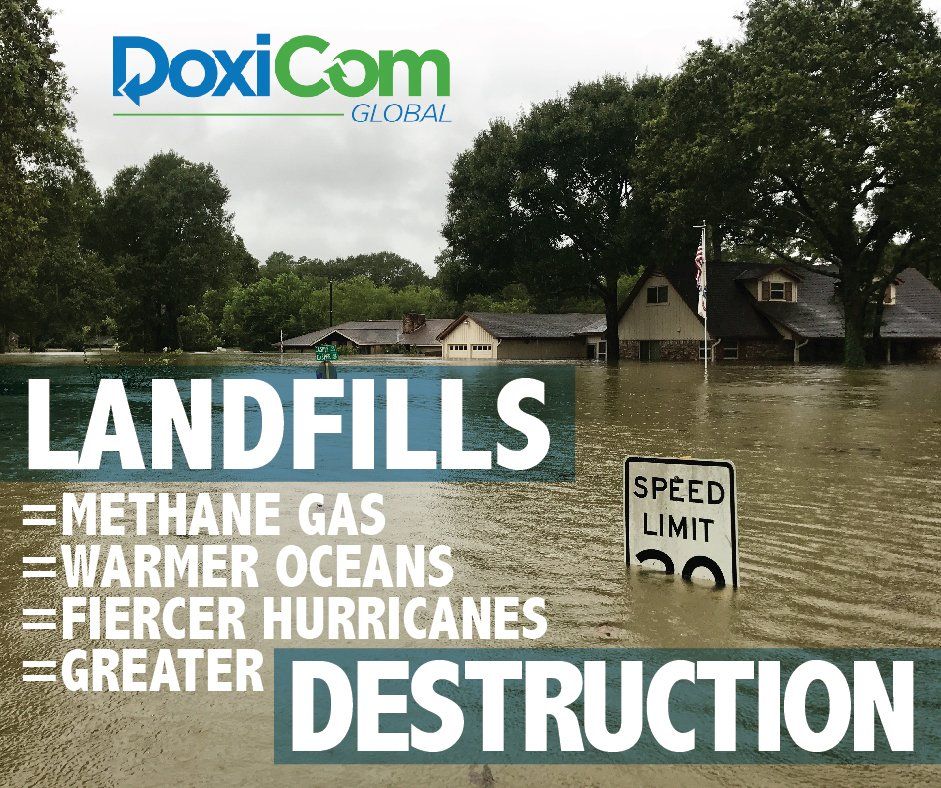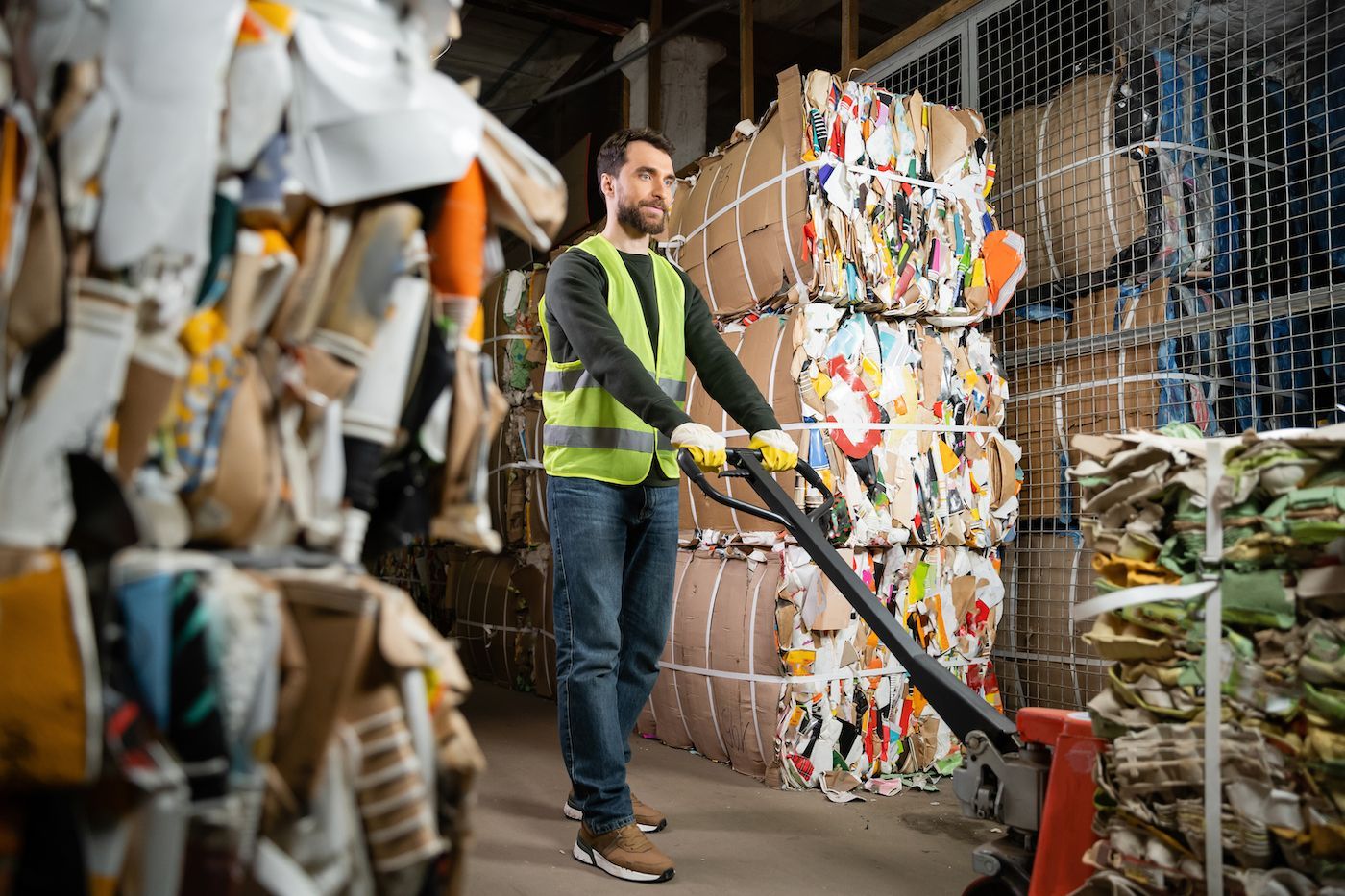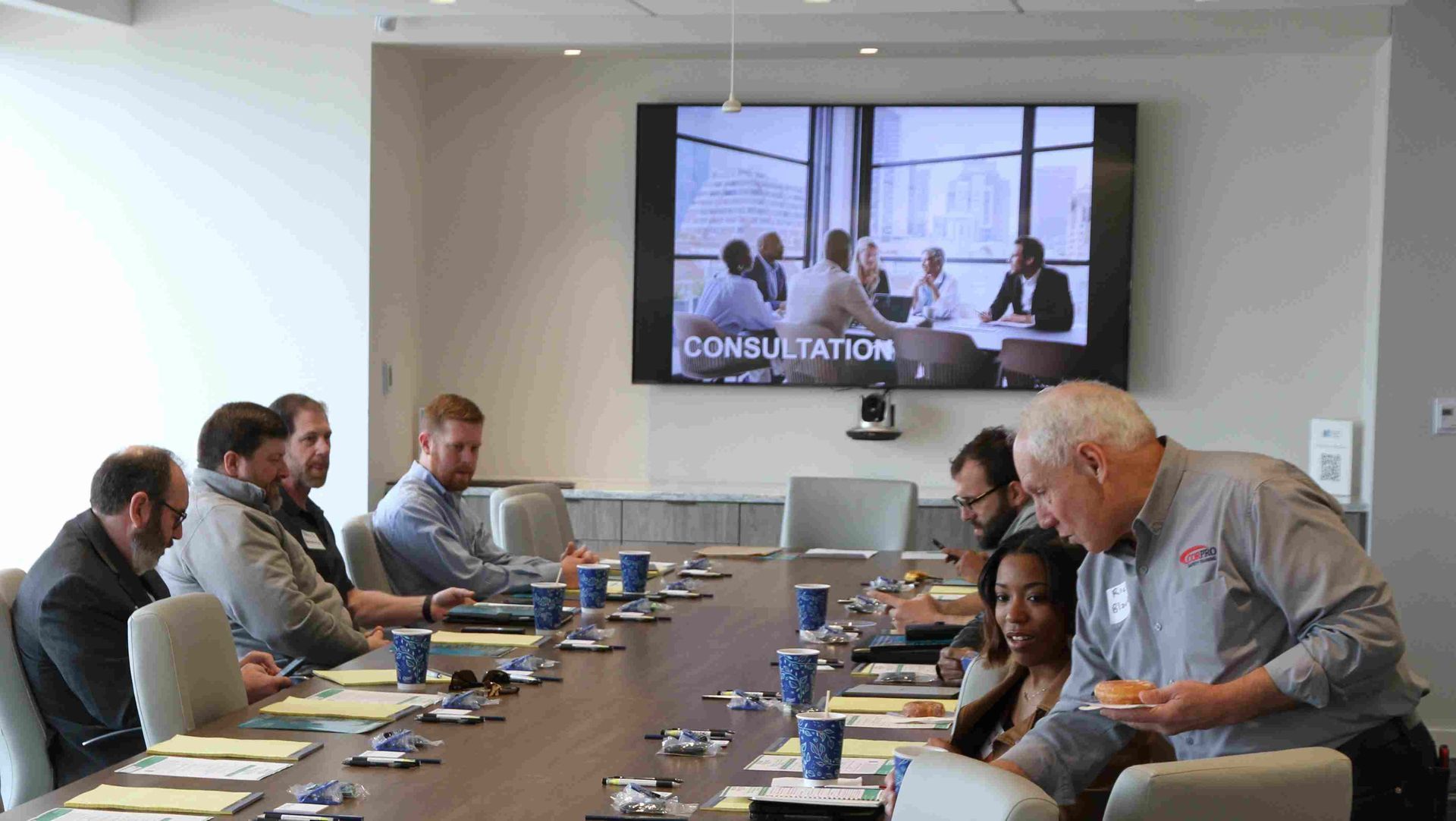These are a few powerful Atlantic hurricanes that have battered the United States and the Caribbean in the last two decades. Every year, there seem to be more storms, though not all of them make the news. However, the ones that create headlines seem to be more intense and more devastating. Why might this be? And what can we do to help?
A 2020 study revealed that major tropical cyclones (“hurricanes” when they form in the Atlantic) featuring winds more than 115 miles per hour have become 15% more likely in the last 40 years 1,4. The North Atlantic region saw the most significant increases: the chance of a major hurricane forming in the North Atlantic jumped 49% per decade during the study period1.
Researchers suggest that climate change from greenhouse gases “will cause hurricanes in the coming century to be more intense globally and have higher rainfall rates than present-day hurricanes” 3. Increased greenhouse gases (GHG) like carbon dioxide and methane are thought to create warmer ocean temperatures, contributing to an environment of warm, moist air that hurricanes feed on.
Locally, we can observe similar trends. In the same way that greenhouse gases increase rainfall rates in hurricane-stricken areas, the Midsouth region may experience more extreme weather events, which include heavier rainfall resulting in more instances of mass flooding. Much like hurricanes, mass floods are capable of immense destruction to life, property, infrastructure, and the environment. The Midsouth produces a considerable amount of GHG, especially methane, from its agriculture and the 155 landfills spread across Tennessee and Mississippi 6.
What does this have to do with your waste stream? According to data from 2016, manufacturing and construction account for roughly 24% of global greenhouse gas emissions
2. These emissions may be attributed to production or consumption; making, transporting, and disposing of goods all take energy and produce GHG. When a manufacturer sends all its waste to a landfill, the waste breaks down and releases methane into the atmosphere. Methane is 84 times more potent than carbon dioxide
5, meaning it traps 84 times more heat in the atmosphere. So while it might be more convenient to truck everything to a landfill, doing so helps create the perfect storm to generate stronger hurricanes: more waste leads to more GHG emissions, which create warmer oceans, which feed fiercer hurricanes.
The good news is that methane lingers in the atmosphere for only 10-12 years 5. Reducing the amount of methane produced from landfills is an immediate solution to preserving the health of our environment and, in the long run, hopefully reducing the number of intense storms that cause billions of dollars in damage and the loss of invaluable human lives.
Waste materials need to be diverted from landfills as quickly as possible, but where do they go? This is where Doxicom Global comes in.
For more than 17 years, we have helped customers move toward zero landfill, saving them money as we save the environment. We create customized solutions for each client to divert millions of pounds of waste from landfills by reusing, repurposing, or finding solutions for every kind of waste possible: organic waste, plastics, cardboard, and so much more. Our processing centers prioritize sustainability in the way we repurpose your waste, and we guarantee you will pay less than your current landfill services. Our numbers speak for themselves:
- On average, we saved our clients $3,700 per month
- Reduced waste going to the landfill by up to 55%
- We help clients reach a Zero Landfill
- Increased efficiency by 17%
- Reduced waste hauling expenses by 25%
- Increased employee satisfaction by 15%
- Increased safety by 11%
The quickest, most achievable solution to reduce greenhouse gas emissions is to reduce the amount of waste languishing in landfills. Doxicom stands at the forefront of this effort by offering you affordable, customizable solutions all in one place. No matter how complex your waste management needs are, one call takes care of it all.
Call Doxicom for a free waste stream assessment and get started with your Goal Zero Landfill plan.
Sources Cited
- Dunne, D. (2021, April 7). Major tropical cyclones have become '15% more likely' over past 40 years. Carbon Brief. Retrieved October 3, 2022, from https://www.carbonbrief.org/major-tropical-cyclones-have-become-15-more-likely-over-past-40-years/
- Greenhouse gas emissions by Sector. EarthCharts. (2020, March 29). Retrieved October 3, 2022, from http://earthcharts.org/emissions-sources/
- Knutson, T. (2022, September 30). Global warming and Hurricanes. GFDL. Retrieved October 3, 2022, from https://www.gfdl.noaa.gov/global-warming-and-hurricanes/
- Kossin, J. P., Knapp, K. R., Olander, T. L., & Velden, C. S. (2020, May 18). Global increase in major tropical cyclone exceedance probability over the past four decades. PNAS. Retrieved October 3, 2022, from https://www.pnas.org/doi/10.1073/pnas.1920849117
- Climate change and Zero waste: Eco-cycle solutions hub. Eco. (n.d.). Retrieved October 3, 2022, from https://www.ecocyclesolutionshub.org/about-zero-waste/climate-change/#:~:text=Zero%20Waste%20addresses%20the%20entire,and%20what%20we%20throw%20away.
- Environmental Protection Agency. (n.d.) Project and Landfill Data by State. Retrieved October 5, 2022, from https://www.epa.gov/lmop/project-and-landfill-data-state
Other Sources Consulted
Bailey, K. (2015, December 15). 10 reasons why zero waste is a priority climate solution. Northeast Recycling Council. Retrieved October 3, 2022, from https://nerc.org/news-and-updates/blog/nerc-blog/2015/12/15/10-reasons-why-zero-waste-is-a-priority-climate-solution
Environmental Protection Agency. (n.d.). Climate Change. Retrieved October 4, 2022, from https://www.epa.gov/climate-change
Environmental Protection Agency. (n.d.). Resources, Waste & Climate Change. Retrieved October 4, 2022, from https://www.epa.gov/smm/resources-waste-and-climate-change
IPCC, 2014: Climate Change 2014: Synthesis Report. Contribution of Working Groups I, II and III to the Fifth Assessment Report of the Intergovernmental Panel on Climate Change [Core Writing Team, R.K. Pachauri and L.A. Meyer (eds.)]. IPCC, Geneva, Switzerland, 151 pp.
Knutson, T., Camargo, S. J., Chan, J. C., Emanuel, K., Ho, C.-H., Kossin, J., Mohapatra, M., Satoh, M., Sugi, M., Walsh, K., & Wu, L. (2020). Tropical cyclones and climate change assessment: Part II: Projected response to anthropogenic warming. Bulletin of the American Meteorological Society, 101(3). https://doi.org/10.1175/bams-d-18-0194.1
Rowland-Shea, J., Jawando, M. L., Taraska, G., Baussan, D., Tausanovitch, A., Roberts, W., So, K., & Conner, A. (2021, April 30). Energy from waste can help curb greenhouse gas emissions. Center for American Progress. Retrieved October 3, 2022, from https://www.americanprogress.org/article/energy-from-waste-can-help-curb-greenhouse-gas-emissions/











